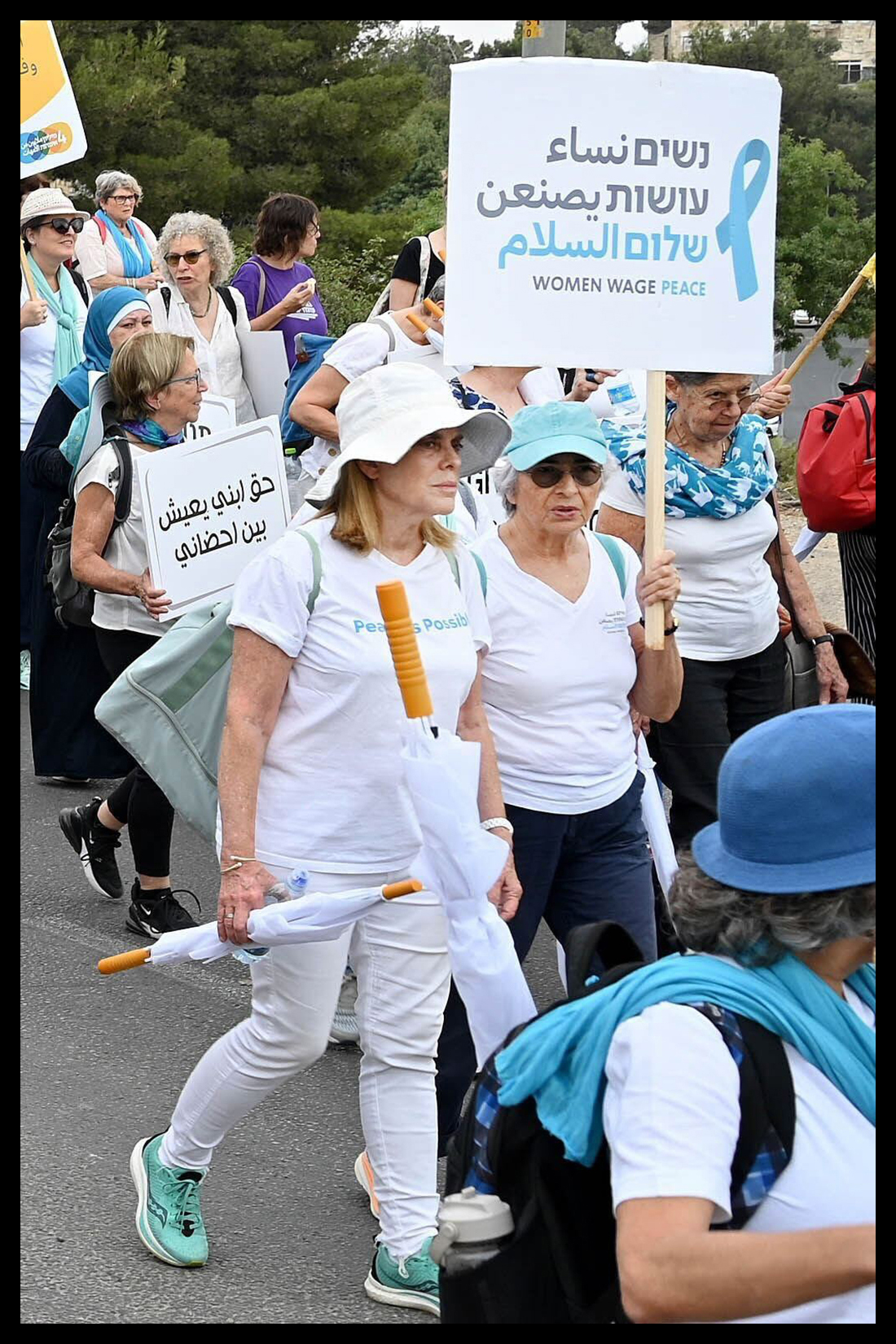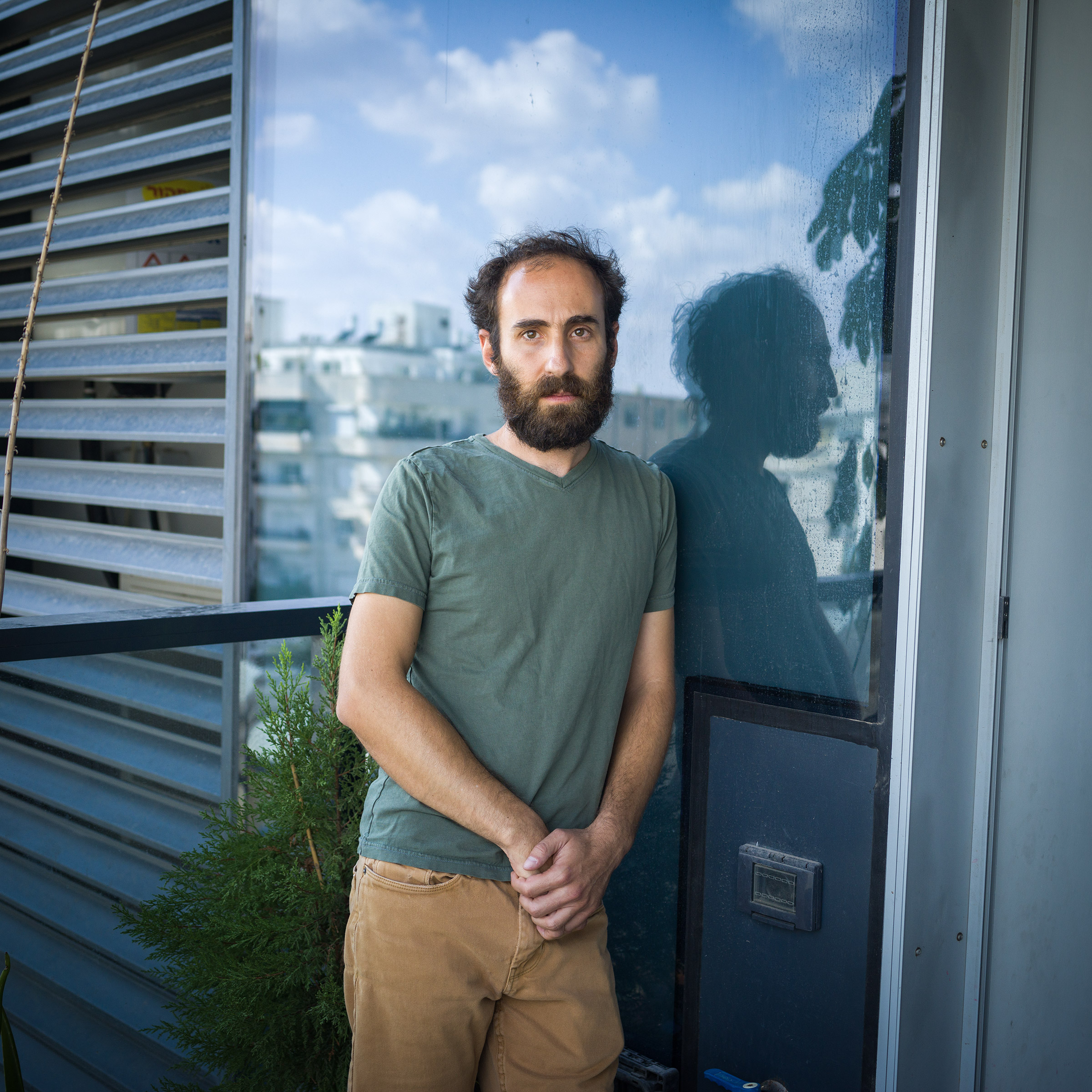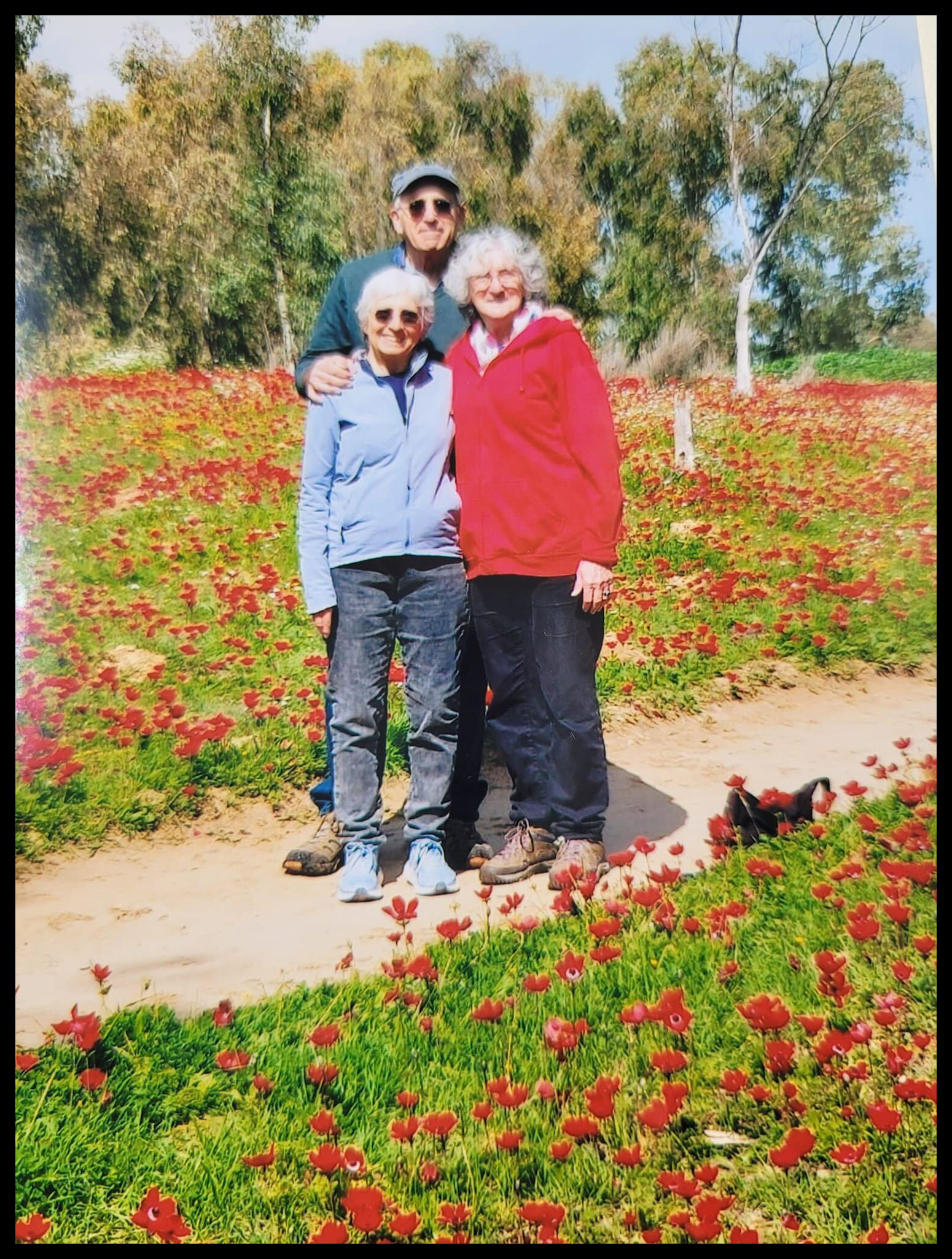
To those who know her, it is a painful irony that Vivian Silver, 74, was kidnapped by Hamas and apparently taken into the Gaza Strip. Diminutive, her gray hair cropped short, she is known among activists in Israel and abroad for her seemingly never-ending energy, commitment, and creative efforts to promote peace with Palestinians and equality between Jews and Arabs within Israel.
Silver is long-time member of Kibbutz Be'eri, only a few kilometers from the border with the Gaza Strip in southern Israel. In the early morning on Oct. 7, as terrorists invaded the kibbutz, Silver, who is widowed and lives alone, hid behind a closet in her safe room and began texting family and friends. At 11:07, her son, Yonatan Zeigen, who lives with his wife and three children in Tel Aviv, texted her, “I am with you.”
“I feel you,” Silver responded.
She has not been heard from since. “We don't know where she is,” Zeigen says. “I can only hope that she is being held in Gaza. What a terrible hope that is, but it is better than having no hope.”

Born in Winnipeg, Canada, Silver came to Israel in 1974 and moved to Kibbutz Be'eri in 1990, where she and her American-born husband raised their two sons. Silver soon became acutely aware of the discrimination against Bedouin communities in southern Israel and initiated several projects to promote equality, including one in which she matched Arab and Jewish women to produce items they could sell for profit. Recalls Susan Levinstein, a friend who came to Israel around the same time as Silver, "She put together a Jewish poet and an Arab illustrator, who made a book together; an Arab woman who made soap with a Jewish ceramicist who made soap dishes; and a Jewish jeweler with an Arab woman who carved olive-wood jewelry boxes."
In 2000, she founded the Arab-Jewish Center for Empowerment, Equality, and Cooperation (known locally as AJEEC-NISPED), which is composed of joint teams of Arabs and Jews working to create a shared, equal society. For over a decade, she co-directed AJEEC-NISPED with Kher Albaz, a resident of the Bedouin town, Tel Sheva. "It has been a privilege and an honor to work with Vivian," says Albaz. "She embodies true morality and belief in human equality, not as slogans but in the way she lives her everyday life."
Until 2005, Silver regularly traveled to the Gaza Strip to meet with like-minded female Palestinian activists. And even after Hamas and Palestinian Islamic Jihad began to frequently shell Israeli civilians, including Kibbutz Be’eri, and Israel responded with incursions into the Gaza Strip, Silver maintained regular telephone contact with those women. She stopped calling only when the women from Gaza became fearful that they would be in danger from Hamas militants. "Vivian was able to hold onto the real complexities of reality," says Ariella Giniger, a friend and co-activist who lives in Israel's central region. "She recognized injustice of the Israeli occupation of the Palestinian people, also remained a Zionist, fully convinced that the Jewish people have the right to their homeland. She saw no contradiction between these stands, as long as we look for well-intended solutions."
Silver retired a few years ago, but remained active, including in Road to Recovery, an Israeli NGO that enlists Israeli volunteers to drive Palestinian patients who require medical treatment from the border to Israeli hospitals. Most prominently, she was also a founding member of the Israeli-Palestinian Women Wage Peace (WWP) movement, established in late 2014. “She is acutely aware of women's historic role to change reality and challenge accepted thinking,” says Yael Admi, who helped to co-found WWP with Silver. “In founding WWP, she was challenging the prevalent paradigm that only war will bring us security. As a woman, she knows that war will only bring more war, and only peace will bring us security."

Prominent U.S. feminist Prof. Carol Gilligan, who has supported peace work in Israel for decades, knows Silver well and agrees. "Vivian is, above all, a good person and a beautiful human being, and she embodies this in everything she does,” Gilligan says. “She is the antithesis of the use of force, and, as a woman, she would see that this tragedy is proof that it is vital to include women, and the ways that women try to solve conflicts, in all decisions and negotiations."
On Oct. 4, just days before her kidnapping, Silver helped to organize, together with WWP's sister Palestinian movement, Women of the Sun, "The Mother's Call," an annual event that rallies hundreds of Israeli, Palestinian and international women and activists in support of a peaceful future for Israel and Palestine. Says Admi, "The event succeeded beyond even our expectations, and Vivian was so happy. There was so much positive energy for peace. How can we fathom that only days later, she was taken?"
A group of Silver's friends and family members have mobilized, trying to obtain information and to support each other. Giniger is trying to find the prescription for Silver's glasses, in the hope of giving them to the Red Cross or another organization that would bring them to her. "Vivian is a woman of deep principles and commitments, a woman of peace. But she also needs her glasses," she says ruefully.
Her friends, family, and supporters all agree that Israel's current attack on Gaza is not what Silver would want. "I am sure she would not want the violence to continue, certainly not in her name or in the name of saving her and the other hostages," Giniger says. Albaz says that he tries to console himself with a fantasy. "I see Vivian being held with a group of other hostages, trying to convince their captors that this is not the right way. And she's probably already divided them all into break-out groups, so they can talk about how to make the situation better for everyone."
Sadly, Zeigen concludes, "I know that the Hamasnik who came to kill wasn't looking for my mother. But that is who he took. It is a childish fantasy to believe that any of us can somehow avoid the pain of war, no matter how much good you have done in your life. War is absurd, but also very personal. My mother is an Israeli, a Jew, a hostage. But she is also a grandmother who makes scrapbooks and specially designed cakes for her grandchildren."
More Must-Reads From TIME
- The 100 Most Influential People of 2024
- Coco Gauff Is Playing for Herself Now
- Scenes From Pro-Palestinian Encampments Across U.S. Universities
- 6 Compliments That Land Every Time
- If You're Dating Right Now , You're Brave: Column
- The AI That Could Heal a Divided Internet
- Fallout Is a Brilliant Model for the Future of Video Game Adaptations
- Want Weekly Recs on What to Watch, Read, and More? Sign Up for Worth Your Time
Contact us at letters@time.com